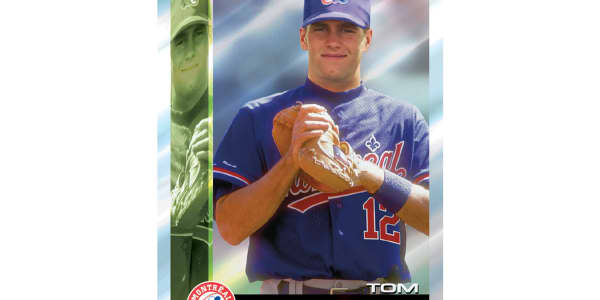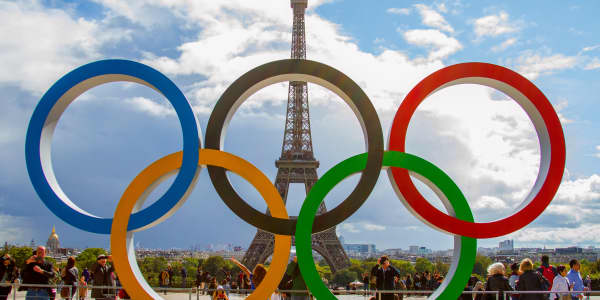In 1990, McDonald's ditched the styrofoam home for the Big Mac, and its signature burger has been served ever since in paper wrap. Reusable packaging may be next.
McDonald's is making some progress on a goal it set in 2018 to use recycled or renewable packaging in 100% of its restaurants by the end of 2025, but activist shareholders are moving onto the next big target: pressing the fast-food giant for more focus on reusables.
While there were hundreds of environmental and climate measures introduced by shareholders this spring for annual meetings, one that got dropped in March was at McDonald's, which reached a deal with shareholder advocacy non-profit As You Sow to withdraw a proposal in exchange for the company agreeing to produce a report on the implications of switching to reusable packaging.
The battle between McDonald's and environmentally minded shareholders goes a long way back, starting in the 1980s when multiple grassroots organizations and broader public awareness about the lightweight plastic material known as polystyrene led to the change in the packaging of the Big Mac and other sandwiches. But it wasn't until 2018 that McDonald's completely eliminated styrofoam across all of its global markets.
McDonald's biggest reusable packaging changes are outside US
McDonald's has made several big packaging changes in recent years, mostly coming from outside the U.S. and following governmental action. The European Commission banned certain single-use packaging, including straws, plates and cutlery, and required all packaging in these categories be designed for reuse as of July 2021, the first time the EU targeted reuse specifically. And at the end of last year, McDonald's France launched a reusable plastic food container in its signature red color – though not without initiating a new controversy over the decision to not use all glass or metal.
There are many challenges that come with reusable packaging, and McDonald's has looked to highlight that as it agrees to conduct more research on the reusables economy. Last month, McDonald's released a report it commissioned from consulting firm Kearny — with the headline "No silver bullet" — detailing several reasons why reusables may be too expensive to be a sole solution. The report suggests the balancing act the fast food giant is trying to pull off — responding to changes in European regulation when required, but also arguing that it is a mistake to see reusables as the only model for responsible packaging in the future.
High upfront costs, required kitchen and infrastructure changes – whether on or off-site dishwashing capacities – and rises in energy and water use all pose challenges to the operations of reusable packaging, the report said. The report quoted the European Paper Packaging Alliance, which estimated that water consumption for a reusable system with 100 reuses would cost 267% higher than a paper single-usage model.
The report also touched on the potential negative impact to consumer experience and food safety.
"In some circumstances, plastic is the right option to keep things safe and properly contained, let alone making sure that the food you love is tasty and the experience is what you are hoping it would be," a McDonald's spokesperson told CNBC.
Food safety measures that could be compromised include the chemicals that can come from color coatings on reusable plastics and the potential for microbiological growth and accumulation if the packaging is scratched – in addition to whatever consumers do with the packaging before they return it.
"In a climate where it seems that there needs to be an all-or-nothing approach, what's been missed in reporting on reusables to date is just the actual open scale of it," the McDonald's spokeswoman said.
The economics case for reusable packaging
Advocates for reusable packaging argue that the economics will work.
Multinational corporations need to have reusable packaging strategies in place as part of risk management, according to Kelly McBee, circular economy senior coordinator at As You Sow, to comply with a Global Plastics Treaty deemed by the United Nations aimed to end single-use plastic production and usage by 2024 under an international legally binding agreement.
The reusable packaging efforts that McDonald's has already undertaken in Europe show that a strategy around reuse in the U.S. is possible, McBee said, adding that she expects McDonald's future report on the topic to "discuss how, when and to what extent the company could pursue reusable packaging in the U.S."
Furthermore, she says other studies of reusable packaging show that, over time, businesses will save money that otherwise would be spent on disposables.
McBee cited research from the Ellen MacArthur Foundation, which found that replacing 20% of single-use plastic packaging with reusable alternatives offers an opportunity worth at least $10 billion by weight cost, saving six million tons of material.
McDonald's, however, is sticking to its broader sustainability message in packaging.
"There's unintended consequences of reuse in a world and in a system where we've made so much progress. While reuse has been kind of a bright flashy object as of late, McDonald's has been invested in studying this for a decade," the company spokeswoman said.
For example, there has already been discussion of converting existing packaging to primarily fiber-based options. Since 2018, McDonald's has reduced virgin fossil fuel-based plastic in Happy Meal toys by 24.4% globally, and has committed to 100% of sourcing for materials used in Happy Meal toys will be made from more renewable, recycled, or certified materials like bio-based and plant-derived materials and certified fiber by 2025.
Fast-food rivals such as Burger King are testing reusables
Fast-food rivals have been testing reusable packaging options, including Burger King, which worked with Loop, a global recycling company, on pilot programs to create a reuse system at its restaurants in 2020. In New York City, Tokyo, and Portland, Oregon, customers could return reusable cups and containers to participating chains in exchange for a small deposit.
McDonald's also worked with Loop on a pilot in the U.K. for reusable coffee cups. For a £1 (currently $1.24) deposit, customers could opt into using a returnable Loop cup and could even receive a 20p ($0.25) discount on their purchase. When returned in store, customers could receive their deposit back in the form of cash, a voucher, or a new reusable cup for their next drink. At kiosks, customers could get a voucher or their money returned through the Loop app.
Both the Burger King and McDonald's pilot programs were live until mid-2022, and the fast food chains are now "assessing the development of the platform," according to a Loop spokesperson.
Clemence Schmid, general manager at Loop Global, said consumers want reuse and will reward companies that do it, but added that the use of reusable containers and cups "has to make sense to the consumer and be kept affordable, meaning the deposit is reasonable."
Alluding to McDonald's concerns, she said the company has to ensure there is enough scale and volume for the usage of reusable products to make economic sense.
Burger King hasn't made a permanent decision and it did not provide many details on the results of the test.
"The pilot program has now concluded, and we are using key learnings about guest adoption and operational effectiveness in identifying long-term solutions for reusables," a spokesman at Restaurant Brands International, the fast food holding company that owns Burger King, wrote via email.

Matt Prindiville, the former CEO of reuse non-profit Upstream Solutions who recently moved to redeemable container company Clynk, said there is "a sweet spot of finding the right incentive to motivate behavior without discouraging participation or creating an undue burden."
Whether that be through a deposit incentive or an added discount, Prindiville said that reusable packaging can not only be cost-effective, but also create a better environmental profile for McDonald's and be a better experience for the customer.
"We generally like eating and drinking out of things that aren't disposable. It's not a great experience to drink out of something that you are just going to throw out in the garbage a few minutes later," Prindiville said.
While moving in the direction of reusable products would require capital improvements and staff training, Prindiville highlighted a recent Upstream Solutions report that saw 100% of 121 businesses and 11 institutional dining programs save money when switching to reusables, factoring in the costs of new labor, products, and increased dishwashing. But there is a need for standardization at scale in order for McDonald's and other fast food chains to be cost-effective when it comes to reusable packaging, he said.
Three decades on from the shift away from foam Big Mac packaging, McDonald's and its franchisees have moved to renewable, recycled, and certified sources in many product areas and across many countries. But the question remains how feasible it is for the company to make the bigger shift to reusable products, a question its recent deal with As You Sow stipulates the company provide an answer to by the end of 2024.






